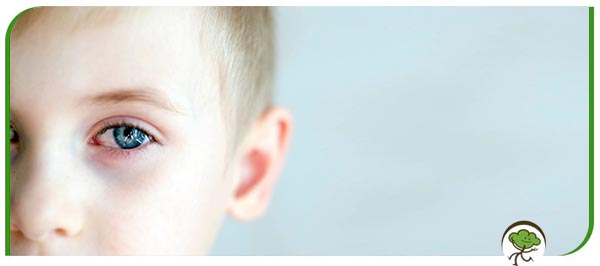Mild Pink Eye vs. Severe Cases: What’s the Difference?
Mild pink eye (conjunctivitis) typically causes redness, mild irritation, and watery eyes, often improving within a few days with proper care. At Kidswood Pediatrics, Dr. Zully E. Ambroise provides expert diagnosis and treatment to help distinguish between mild and severe cases, ensuring the right care for your child’s eye health. For more information, contact us or schedule an appointment online. We are located at 1680 Lee Rd, Winter Park, FL 32789.


Table of Contents:
What are the symptoms of mild pink eye?
Can severe pink eye lead to vision problems?
What conditions can make pink eye more severe?
What complications can arise from untreated severe pink eye?
Children with mild pink eye may experience redness in one or both eyes, a result of inflammation in the conjunctiva—the thin layer covering the white part of the eye and the inner eyelid. This redness is often accompanied by a gritty or sandy sensation, making the eyes feel irritated. Increased tearing or watery eyes are also common as the body tries to soothe the irritation.
Parents might notice a mild discharge from their child’s eyes, which can be watery or slightly thicker, often causing the eyelids to stick together, especially in the morning. Mild itching or burning sensations might make your child uncomfortable, though these symptoms are typically not severe. Some children may also experience sensitivity to light, known as photophobia, which can cause discomfort in bright lighting conditions. Despite these symptoms, vision is usually not significantly affected, though there may be slight blurring due to excessive tearing.
At Kidswood Pediatrics, we emphasize the importance of good hygiene to manage and prevent the spread of pink eye. Our pediatric team is dedicated to providing compassionate care and effective treatment options to ensure your child’s quick recovery and comfort.
Potential Complications:
• Bacterial Conjunctivitis: Certain bacteria, such as Neisseria gonorrhoeae or Chlamydia trachomatis, can cause severe infections. If untreated, these can spread and damage the cornea, potentially impairing vision.
• Viral Conjunctivitis: Often caused by adenoviruses, some strains can lead to keratitis, an inflammation of the cornea. This can result in blurry vision or, in severe cases, scarring that might affect vision.
• Allergic Conjunctivitis: While typically not leading to long-term vision problems, severe or chronic cases can cause temporary blurriness due to excessive tearing and swelling.
At Kidswood Pediatrics, we emphasize the importance of prompt treatment and proper management to prevent complications. This includes:
• Timely use of prescribed medications, especially antibiotics for bacterial infections.
• Maintaining good hygiene to prevent the spread of infection.
• Seeking medical advice if symptoms worsen or do not improve.
• Regular follow-ups to monitor and address any potential complications early.
Dr. Zully E. Ambroise is dedicated to providing comprehensive care tailored to your child’s needs. We encourage parents to contact us if they notice any signs of conjunctivitis in their children. Early intervention is key to ensuring your child’s vision remains healthy and unaffected. Trust Kidswood Pediatrics to support your child’s eye health every step of the way.
• Individual Health Needs: Children with pre-existing health conditions, such as immune system challenges, may experience more severe symptoms of conjunctivitis. Our pediatricians are trained to recognize these complexities and provide personalized care plans for children with conditions like allergies or chronic eye issues.
• Managing Allergies: Allergies often exacerbate pink eye symptoms. At Kidswood Pediatrics, we offer allergy testing and management strategies to help reduce your child’s risk of severe conjunctivitis. By addressing underlying allergies, we aim to minimize discomfort and expedite recovery.
• Chronic Eye Conditions: For children with conditions such as blepharitis or dry eye syndrome, our team provides specialized eye care advice. We focus on creating a protective environment for the eyes to reduce the likelihood of infection and irritation, helping to manage pink eye more effectively.
• Contact Lens’: Many older children and teens use contact lenses, which can complicate cases of pink eye. We educate our young patients on proper lens hygiene and recommend switching to glasses during an outbreak to prevent further irritation and ensure a swift recovery.
• Infections: Some strains of bacteria or viruses can cause more severe forms of pink eye. Our pediatricians are experienced in diagnosing and treating these cases, often collaborating with specialists when necessary. We emphasize the importance of timely medical attention to manage symptoms and prevent complications.
At Kidswood Pediatrics, we believe in empowering parents and children with knowledge about pink eye. We provide educational resources to help families understand the condition, recognize symptoms early, and implement preventive measures at home. By focusing on these key areas, we ensure that each child receives the most effective and compassionate care for pink eye. Our team is committed to supporting your child’s eye health and overall well-being, making sure they get back to their daily activities as quickly and comfortably as possible.
Conjunctivitis, if left untreated, can lead to infections spreading to other parts of the eye, such as the cornea, potentially resulting in keratitis. This condition can cause pain, blurred vision, and in severe cases, corneal ulcers, which may lead to permanent vision impairment. This is especially concerning when dealing with bacterial conjunctivitis caused by more aggressive bacteria, such as Neisseria gonorrhoeae, where the risk of significant corneal damage is heightened without prompt treatment.
Additionally, chronic conjunctivitis can develop if the condition, often caused by allergens or irritants, remains untreated. This can result in persistent symptoms like redness, irritation, and discharge, affecting your child’s quality of life and daily activities. Viral conjunctivitis, particularly from adenovirus, is highly contagious and can lead to prolonged symptoms and easy spread to others if not addressed.
For children, untreated conjunctivitis not only risks eye complications but can also lead to other issues like ear infections, especially in bacterial cases. Moreover, conjunctivitis might be a sign of a systemic infection or associated with other health conditions. Failing to treat the eye condition can delay the diagnosis and treatment of underlying diseases, leading to more severe health outcomes.
At Kidswood Pediatrics, we stress the importance of timely medical evaluation and treatment of conjunctivitis to prevent complications and maintain your child’s eye health. Our dedicated team is here to provide the care and support your child needs to recover quickly and maintain their overall health and well-being. For more information, contact us or schedule an appointment online. We are located at 1680 Lee Rd, Winter Park, FL 32789. We serve patients from Winter Park FL, Goldenrod FL, Lockhart FL, Maitland FL, Apopka FL, Casselberry FL, and Oviedo, FL.

Additional Services You May Need
▸ Covid Test
▸ Vaccinations
▸ Well and Sick Visits
▸ Newborn Care
▸ Preterm
▸ Sports Physicals
▸ ADHD Screening
▸ Well Child Care
▸ Flu Vaccination

Additional Services You May Need
▸ Covid Test
▸ Vaccinations
▸ Well and Sick Visits
▸ Newborn Care
▸ Preterm
▸ Sports Physicals
▸ ADHD Screening
▸ Well Child Care
▸ Flu Vaccination


